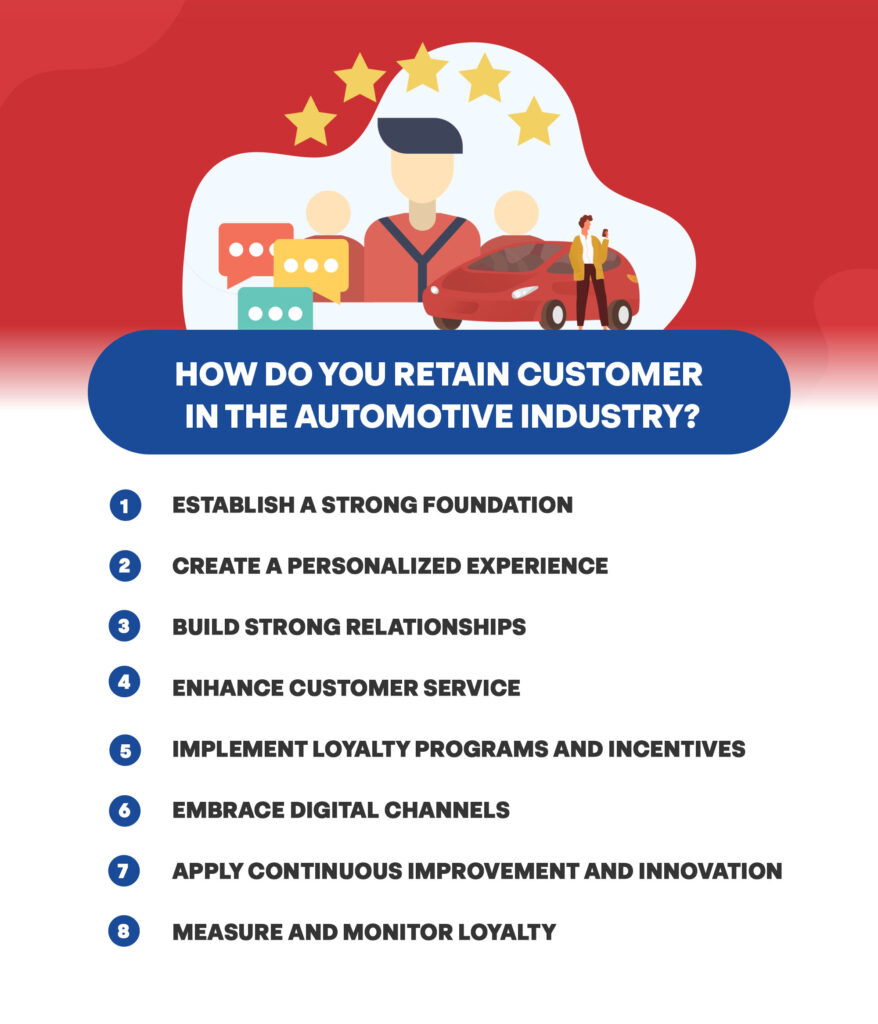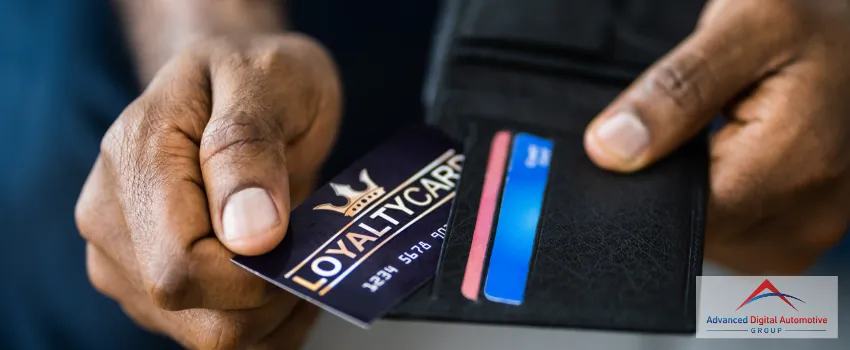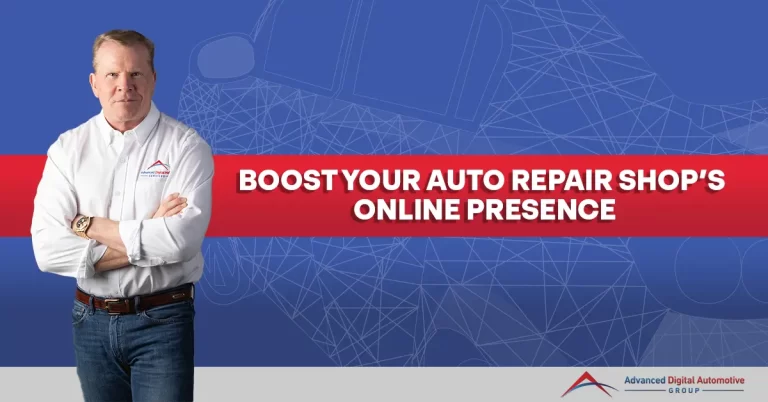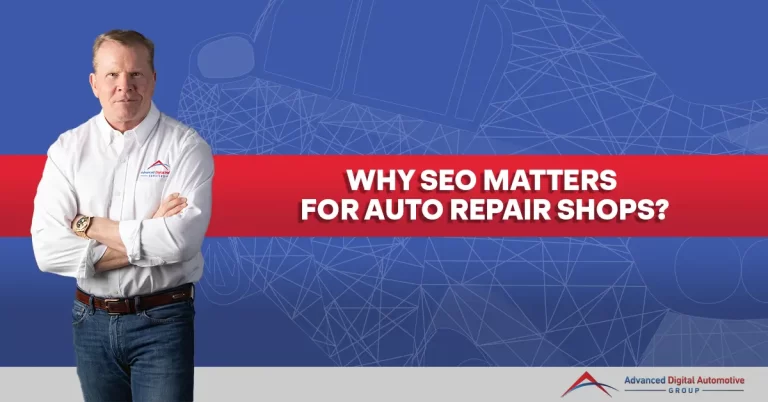Customer loyalty and retention are vital for success in the automotive industry. Building long-lasting relationships with customers is the key for automotive businesses to thrive. However, maintaining customer loyalty poses challenges in a highly competitive market.
Factors such as increased options and rising customer expectations make it crucial for automotive businesses to implement effective strategies for building and nurturing customer loyalty. This blog will feature proven client retention strategies that can help your business overcome these challenges and cultivate loyal customers.
What Is Customer Loyalty in the Automotive Industry?
Customer loyalty refers to customers’ commitment and preference towards a particular automotive brand or dealership. Building customer loyalty is not just about repeat purchases; it signifies customers’ emotional connection and trust in a brand.
Customer satisfaction is pivotal in building this loyalty, as satisfied customers are likelier to become loyal advocates. Various factors influence customer loyalty in the automotive sector, such as the overall vehicle quality, customer service experience, competitive pricing, and personalized offerings.
How Do You Retain Customers in the Automotive Industry?

A question that many business owners ask is how to build customer loyalty. The answer is employing various strategies that focus on providing exceptional customer experiences. Here are a few client retention tips:
1. Establish a strong foundation.
A strong foundation begins with offering high-quality products and services that meet or exceed customer expectations. By consistently delivering reliable and well-crafted vehicles, automotive businesses can establish customer trust and credibility.
Building trust also fosters transparency in pricing, transactions, and service processes. Additionally, providing exceptional customer experiences at every touchpoint, from sales to aftersales services, contributes to building long-term loyalty.
2. Create a personalized experience.
Creating a personalized experience is one of the most imperative client retention strategies for building customer loyalty in the automotive industry. Automotive businesses can tailor their offerings to match individual requirements by segmenting customers based on their preferences and needs.
Utilizing customer data allows for personalized interactions, such as addressing customers by name and recommending products or services based on past purchases.
3. Build strong relationships.
Building strong relationships is also vital for building customer loyalty. This begins with developing a customer-centric approach, meeting customers’ needs, and going beyond their expectations.
Actively engaging with customers through multiple touchpoints, such as in-person interactions, phone calls, emails, and social media, helps to establish a connection and foster loyalty. Encouraging customer feedback and taking prompt action based on their input demonstrates that their opinions are valued, further strengthening the relationship built.
4. Enhance customer service.
Doing so involves training and empowering employees to deliver excellent service, ensuring they have the skills and knowledge to meet customer needs. Implementing prompt and effective complaint resolution processes demonstrates responsiveness and a commitment to customer satisfaction.
Additionally, utilizing technology, such as customer service software and chatbots, can improve efficiency and streamline the customer service experience, further enhancing loyalty-building efforts.
5. Implement loyalty programs and incentives.

By offering loyalty programs, automotive businesses can reward and incentivize repeat customers, making them feel appreciated and valued. These programs can include exclusive benefits and discounts, such as special offers on maintenance services or priority access to new vehicle models.
Furthermore, referral programs encourage existing customers to advocate for the brand and refer their friends and family. This further expands the customer base and fosters loyalty.
6. Embrace digital channels.
Optimizing online platforms and websites ensures a seamless user experience, making it easy for customers to browse and purchase vehicles or schedule services. Leveraging social media and digital marketing strategies allows automotive businesses to reach a wider audience, engage with customers, and create brand awareness.
In addition, customer relationship management (CRM) tools enable businesses to manage customer interactions efficiently, track preferences, and personalize communication, ultimately strengthening customer loyalty.
7. Apply continuous improvement and innovation.
Continuous improvement and innovation are crucial to building customer loyalty in the automotive industry. This involves staying ahead of trends and customer expectations, collecting feedback for improvements, and embracing technology and innovation.
8. Measure and monitor loyalty.
This involves establishing key performance indicators (KPIs) to track customer loyalty metrics, such as repeat purchases and customer satisfaction. Regular customer satisfaction surveys provide valuable insights into the level of loyalty and areas for improvement. Analyzing customer feedback and data helps identify trends, strategies for customer retention, and opportunities to enhance the customer experience.
The Bottom Line
Building customer loyalty in the automotive industry requires implementing key strategies such as providing exceptional customer experiences, personalizing interactions, and establishing solid relationships. Automotive businesses can benefit from long-term customer loyalty, increased repeat purchases, and positive word-of-mouth referrals by prioritizing customer retention efforts.
For the best chance at success, automotive businesses must recognize the value of customer loyalty. They must also consistently invest in building and nurturing these relationships to thrive in the competitive market.
Give your auto repair business a strong online reputation by partnering with Advanced Digital Automotive Group.
As a leading digital marketing agency, Advanced Digital Automotive Group will help you build a solid and positive online reputation. Our digital marketing and reputation management for auto repair services expertise can elevate your brand’s perception, increase customer trust, and attract more clients to your auto repair shop.
With our individualized strategies and advanced techniques, we’ll help your business stand out from the competition and maintain a stellar reputation in the digital age. Contact us now to get started!




